GE’s HA gas turbines enable efficiency record
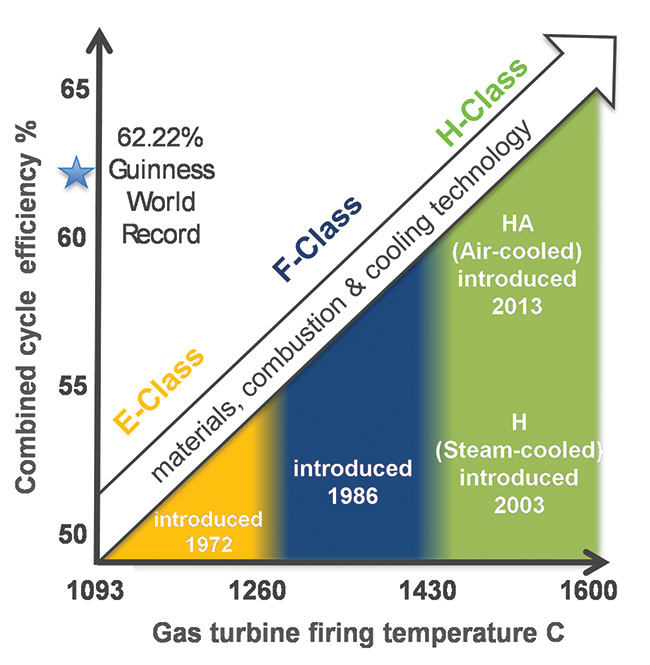 |
| The powerful capability of the 9HA.01 is changing the energy industry |
Guinness World Records
In June, GE and Électricité de France (EDF) officially began the operation of the first-ever combined-cycle power plant equipped with GE’s HA gas turbines in Bouchain, France, launching a new era of power generation technology and digital integration. According to GE, the company has now been recognised by Guinness World Records for powering the world’s most efficient combined-cycle power plant, with an efficiency rate of up to 62.22 per cent.
“We are thrilled to be acknowledged by Guinness World Records for powering the world’s most efficient combined-cycle power plant, and we are also very proud of the industry-leading flexibility and reliability this turbine provides to our customers,” said GE Power’s president and CEO Steve Bolze.
The plant’s beating heart – an advanced GE gas turbine – can convert more than 62 per cent of fuel energy into electricity. For the power-generation crowd, this is like Neil Armstrong and Buzz Aldrin landing on the moon or Sir Roger Bannister breaking through the 4-minute-mile barrier.
The turbine, called 9HA.01 in the GE nomenclature, weighs as much as a fully loaded Boeing 747 and can generate enough power to supply more than 680,000 French homes. It can go from zero to full throttle in less than half an hour, enabling plant operator EDF Energy to quickly respond to changing demand and supply customers with power from intermittent sources of renewable energy, such as wind and the sun.
“It [the combined-cycle power plant] can save you a lot of money. We calculated that a 1,000-megawatt power plant using a pair of H-class (HA) turbines could save $50 million on fuel over 10 years by raising efficiency by 1 per cent,” said John Lammas, chief technology officer for GE Power and vice president of Gas Power Technology.
According to Lammas, it generally takes about a decade of development to increase efficiency by 1 per cent.
“It took us only 36 months to develop the HA turbine and about six years in total to get to where we are today with the Bouchain plant, and in this time, we went from less than 60 per cent to more than 62 per cent in efficiency. This is simply tremendous. We are already testing technologies that can get us to 65 per cent.”
The world record means that GE uses natural gas to generate electricity inside an ultra-efficient gas turbine and then capture the heat it produces, use it to boil water, and make even more power inside a steam turbine.
“The exact efficiency we measured was 62.22 per cent. No one can go higher than that. The previous record holder came in at 61.5 per cent using a non-GE gas turbine,” said Lammas.
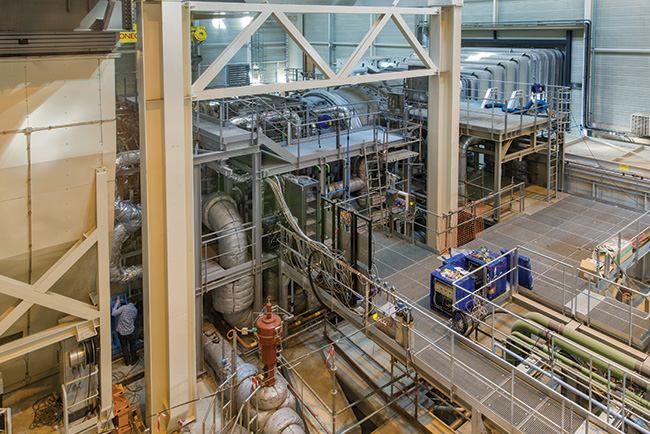 GE and EDF partnered to revolutionise the power generation industry through the combined-cycle power plant |
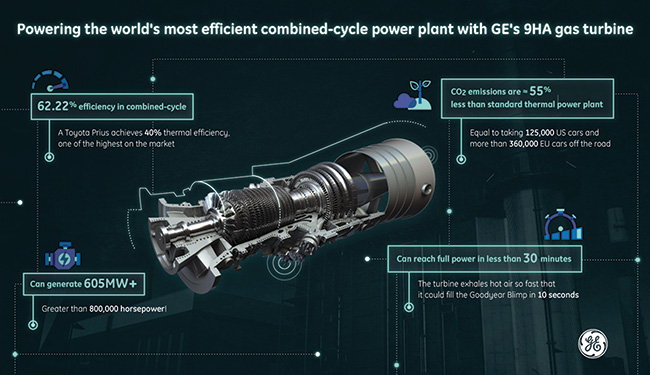 |
State-of-the-art power
“It’s a combination of things. We are running at higher temperatures. We use advanced materials, better thermal barrier coatings and also more sophisticated cooling technology. The turbine also has incredible aerodynamics because of the curved shape of the blades, the aerofoils,” Lammas remarked on the Bouchain machine.
In addition to achieving unprecedented levels of efficiency, GE’s HA gas turbines deliver more flexibility than ever before, as they are capable of reaching full power in less than 30 minutes. This helps pave the way for greater use of renewable energy by allowing partners to respond quickly to fluctuations in grid demand, integrate renewables into the grid and adapt quickly to weather changes. These advances support the recent Paris COP21 agreement, where 195 countries pledged to reduce greenhouse gas emissions, placing more emphasis on cleaner electricity production.
“By commissioning this new generation thermal plant, EDF demonstrates its intent to apply the best available technologies on the market to make its French thermal power plants more energy efficient, while supporting the energy transition,” said Jean-Bernard Lévy, CEO of EDF. “This also confirms EDF’s pledge of innovation under the CAP 2030 programme.”
The Bouchain plant is also an important demonstration of GE’s Digital Power Plant capabilities, which helped drive the record-breaking efficiency by unlocking power that was previously inaccessible. Capabilities, including the digital control system, use real-time data to deliver better plant outcomes with stable and efficient operations, while providing valuable predictive insights for higher reliability and optimisation.
In addition, the HA compressor blows air at a rate that could pump up the Goodyear blimp in 10 seconds, and the tip of the last blade in the 9HA.01 moves at 1,200 mph/1,931 kph, 1.5 times the speed of sound.
“Today is an important milestone in our industry, one that would not have been possible without the hard work and dedication of the many GE and EDF employees across the world, who are committed to a future of increased energy efficiency,” said Joe Mastrangelo, president and CEO of Gas Power Systems at GE Power, at the inauguration ceremony of the first combined-cycle power plant. “By tapping into the broader GE Store, we are able to collaborate on these initiatives and bring together the right hardware and software tools, as well as people to deliver these results.”
GE calculated that when the turbine burns 3.3 tonnes of natural gas mixed with air – equivalent to 23 tanker trucks – only 6.3 fluid ounces of pollution are emitted, a volume slightly larger than half a can of soda.
This is in part because the turbine operates at temperatures approaching the melting point of steel. GE engineers modelled the interior heat flows on a powerful supercomputer and used designs, materials, and special thermal barrier coatings developed for jet engines to handle the temperature. The hot air comes out at a speed approaching a Category 5 hurricane - so fast it could fill the Goodyear Blimp in 10 seconds.
Without the thermal barrier coating, the turbine “was basically like making a fireplace from wax,” noted GE Power’s Lammas.
| HOW A COMBINED-CYCLE POWER PLANT PRODUCES ELECTRICITY |
| This is how a combined-cycle plant works to produce electricity and captures waste heat from the gas turbine to increase efficiency and electrical output. Gas turbine burns fuel The gas turbine compresses air and mixes it with fuel that is heated to a very high temperature (fring temperature - FT). The hot air-fuel mixture moves through the gas turbine blades, making them spin. The fast-spinning turbine drives a generator that converts a portion of the spinning energy into electricity. Rule-of-Thump: the higher the FT is, the higher the plant efficiency is. Heat recovery system captures exhaust A Heat Recovery Steam Generator (HRSG) captures exhaust heat from the gas turbine that would otherwise escape through the exhaust stack. The HRSG creates steam from the gas turbine exhaust heat and delivers it to the steam turbine. Steam turbine delivers additional electricity The steam turbine sends its energy to the generator drive shaft, where it is converted into additional electricity. |
What’s next?
H-class gas turbines that can support the benchmark plant efficiency of 60 per cent or more were first brought in by GE some 10 years ago. By 2015, H-class gas turbines achieved over 230,000 hours of operation. GE’s world-class HA technology has in fact received numerous orders from all over the world, from countries like the US, UK, Brazil, France, Russia, Germany, Turkey, Egypt, Argentina, Japan, South Korea, Thailand, and Pakistan.
According to GE, the company is moving its efficiency rate up to 65 per cent in the time to come, with advanced technologies and materials, in a bid to boost their machine performance to the next level (see the chart above: The powerful capability of the 9HA.01 is changing the energy industry).
GE, in fact, has already started testing technologies that can help them reach 65 per cent efficiency. The company has developed materials called ceramic matrix composites (CMCs) that are light enough but also tough and heat resistant. GE Aviation is already using them inside jet engines and they built a plant for mass-production of parts from CMCs.
In addition, GE is also using 3D printing to make more efficient cooling paths inside blades that they could not produce before. CMCs and 3D printed parts will allow the company to increase the turbines’ firing temperature.
“We also keep improving the aerodynamics and are looking at higher pressures and temperatures in the heat recovery part of the steam generator in the steam turbine to capture more of the gas turbine’s exhaust energy. Finally, we are using some of the world’s most powerful supercomputers to model the heat flows inside the turbines and operate the turbine in unsteady conditions. This will really allow us to take the next machine to a whole new level,” noted Lammas.
| H-class turbines: the future of power generation
CEO of GE Vietnam Pham Hong Son shares with VIR’s Hoang Anh how GE’s innovation in the power industry can meet Vietnam’s requirements and support the country’s power development strategy until 2030. What could be the pros and cons should Vietnam choose to employ GE’s HA technology? We would not foresee any difficulties in the application of HA turbines, but there are many clear benefits, as a matter of fact. GE’s innovation and experience in the power industry can support the energy development in Vietnam, in particular, the operation of gas power plants, in line with the approved National Power Development Master Plan VII. GE’s H-class technology is compatible with the current national power grid, and our HA gas turbines are an effective solution that could support the development of power generation and lower the environmental impact here in Vietnam. In addition, the performance of the HA technology is proven to be high, at above 62 per cent, a record high at present, as GE has lately announced. And thanks to its feasible initial investment cost, as well as the actual low operating costs, the H-class technology is thus deemed effective to be applied at power plants in competitive power markets.. Vietnam’s gas fields vary in terms of scale and quality, and instability is a recurring problem with numerous grant fields but rather unstable. GE’s HA turbines have been tested and proven to suit such issues. Not long after 2030, the reserves at these gas fields are expected to drop sharply. Also, it is important to keep alternative sources of imported fuel and reserves in sight when forging long-term strategies. One of the most effective methods is to enhance the efficiency at power plants and the flexibility in the operations to suit a diverse range of gas fields. GE has confidence that our advanced technology can support our clients to resolve these challenges.
What would be the pathway for GE’s HA technology to get into Vietnam? The very first thing that GE wants to do with our partners is to share information on technologies at our disposal. In the past 2-3 years, local power and energy units had many conferences on the power industry, with the participation of international partners, consultancies, and businesses, and GE also joined to share its views on issues related to technology and application. We have discussed and constructed a full problem solution with assumptions and then made analysis and assessment, in terms of technology, economic efficiency, cash flows, and estimated initial costs. Everyone can thus have an idea on the overall plan from scratch that includes technical solutions, the time engaged, and the land size needed, as well as the economic issues related to power efficiency, first-year costs, how the 25-year lifecycle would be like, and how the electricity prices will change, so that they can balance their plans and come up with the most appropriate solution. For power plants using F-class turbines, has there been any data on the necessity of their replacement, and if they need to be replaced, what would the process be like? According to experts’ estimation, 2020 will be the last year for the F-class generation, meaning markets will minimise their investment in this generation and move on to H-class technology after 2020. It is expected that the number of power plants opting for the H-class will increase significantly. However, the F-class is still suitable for some smaller-scale projects that do not require very high efficiency. It is up to customers to select a suitable scheme. In line with National Power Development Master Plan VII, Vietnam will be developing an additional 12GW from gas power. We can therefore calculate to come up with our preferred efficiency. GE always supports our customers to find the best-suited solutions, with fitting performance and the desired results. |
Applicable to Vietnam
Coal power currently provides roughly 30 per cent of the world’s energy, and remains the main input for many investors in the Vietnamese energy industry. While coal is still a major part of the energy mix, the abundance of gas fuels, including natural gas and liquefied natural gas, is leading to an increase in gas-fired power plants, even though fuel costs can reach up to 70 per cent of the operational expenditures.
Innovative technologies can be adopted to increase the efficiency of power generation and help ensure competitiveness. Together with a strategic generation mix, this will help ensure both a sustainable and affordable cost of electricity (COE) for end-users. H-class power plants can thus help improve the supply of “high-quality” power at a lower cost. The capital and fuel productivity of 9HA gas turbine is unprecedented and presents a major opportunity for Vietnam’s future energy generation mix.
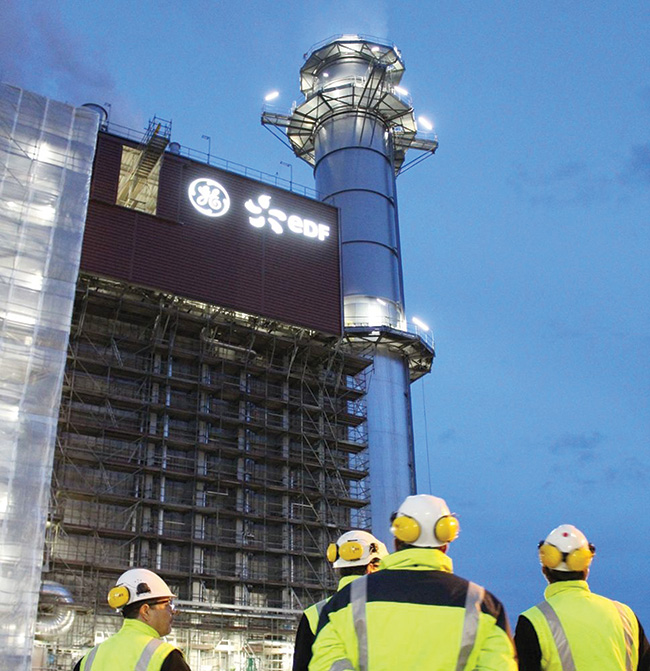 |
| GE’s HA gas turbines have been recognised by Guinness World Records |
Technology evolution in the power industry can help support energy development, not only to help meet energy demand but also to lower the environmental impact. The 9HA gas turbine is an effective solution that could change the future of energy generation in Vietnam.
The power consumption in Vietnam has been rising steadily, fuelling socio-economic development. The country’s stable economy is expected to grow more than 5 per cent year-over-year through 2020, driving the growth of electricity demand to approximately 360 billion kWh in 2020, against an expected figure of 210 billion kWh in 2015.
To implement the National Power Development Master Plan VII for the 2011-2020 period with a vision to 2030, the Vietnamese government estimates that the total investment required for the power sector is approximately $48.8 billion up to 2020, and approximately $75 billion in the period from 2021 to 2030.
The National Green Growth Strategy for the 2011-2020 period with a vision until 2050 also dictates that Vietnam will aim to reduce greenhouse gas emissions by 8 to 10 per cent compared to 2010 levels, and reduce energy consumption per gross domestic product (GDP) unit by 1.0 to 1.5 per cent per year. If development is to provide positive economic growth and meet the needs of a growing population, it will also require a strong commitment to efficiency.
What the stars mean:
★ Poor ★ ★ Promising ★★★ Good ★★★★ Very good ★★★★★ Exceptional
Latest News
More News
- Addressing Vietnam's energy challenges with aeroderivative gas turbines (February 28, 2023 | 09:33)
- How to sprint ahead in 2023’s worldwide energy priorities (February 08, 2023 | 13:55)
- Boosting Vietnam's grid stability through gas turbine technology (November 22, 2022 | 20:02)
- Healthcare trio collaborates to provide thousands of free breast scans (October 27, 2022 | 17:19)
- GE Healthcare's vision for AI-backed radiology (September 29, 2022 | 11:53)
- GE brand trio to shape the future of key industries (July 19, 2022 | 15:35)
- GE unveiling brand names and defining future (July 19, 2022 | 15:16)
- GE: the shortest route towards sustainability (July 18, 2022 | 08:00)
- Be proactive in an uncertain world (May 20, 2022 | 11:40)
- GE secures first 9HA combined cycle power plant order in Vietnam (May 16, 2022 | 17:06)

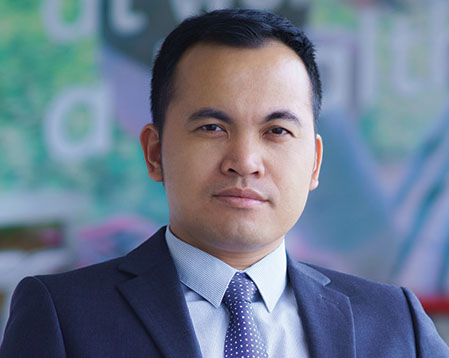 Vietnam has been seeking to enhance its power efficiency and opt for cost-effective fuel solutions, in an attempt to reduce the country’s dependence on coal-fuelled power generation and promote low-carbon power development.
Vietnam has been seeking to enhance its power efficiency and opt for cost-effective fuel solutions, in an attempt to reduce the country’s dependence on coal-fuelled power generation and promote low-carbon power development. 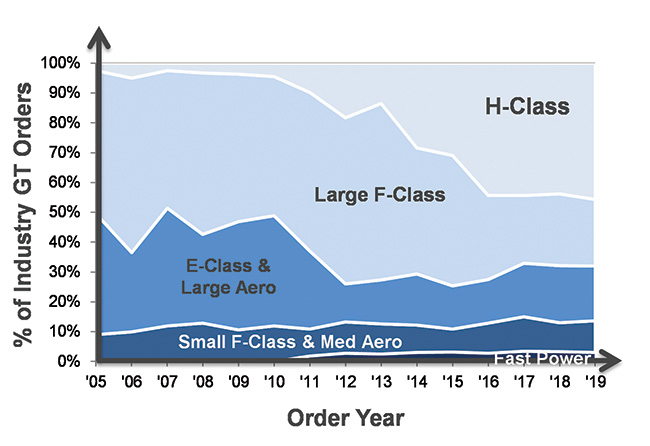















 Mobile Version
Mobile Version